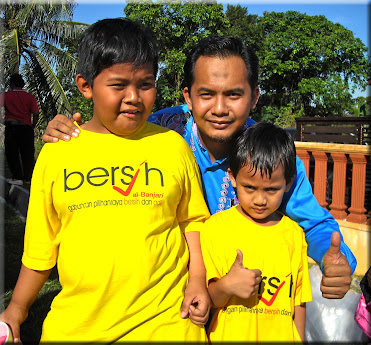International rights group: Let M’sians rally - Malaysiakini
Nov 9, 07 12:23pm
An international human rights group has called on Malaysian police to allow a public rally organised by the Coalition for Clean and Fair Elections (Bersih) tomorrow.
Nov 9, 07 12:23pm
An international human rights group has called on Malaysian police to allow a public rally organised by the Coalition for Clean and Fair Elections (Bersih) tomorrow.
“The grounds for refusing the rally are nonsense,” said Brad Adams, Asia director of New York-based Human Rights Watch.
“If Malaysia wants to count itself a democracy, it can begin by upholding constitutional guarantees of free speech and assembly. The way the system works now, only the ruling coalition can get its messages out.”
Kuala Lumpur chief police officer Zulhasnan Najib Baharuddin has yesterday warned the public that they risk arrest, fines and jail if they participate in the Bersih rally.
Offenders would be facing the possibility of a fine of between RM2,000 and RM10,000 and up to a one-year jail term. Any public gathering of more than five persons without a police permit is considered illegal. It has been reported that the police plan to deploy some 4,000 officers and all buses and cars coming in from outside Kuala Lumpur will be checked.
In addition, roadblocks will be in place at key entry points thus sealing off the rally venue, Dataran Merdeka.
PM claimed to be a reformer
“Organizers of the Bersih rally only want to create a level-playing field for all in the coming elections, yet they are being denied the basic right of expressing their concerns in a peaceful demonstration,” said Adams.
He lamented that while Prime Minister Abdullah Ahmad Badawi has claimed to be a reformer, “but when it comes to holding onto power, he and his Umno party make one set of rules for themselves and another for everyone else”.
Last year, the police made an unprecedented move by granting several permits, including groups that did not even apply for one, to hold demonstrations in conjunction with US Secretary of State Condoleezza Rice’s visit.
Among the biggest demonstrations was one organised by Umno Youth and held near Kuala Lumpur Convention Centre where Rice was attending a function.
Bersih - a coalition of 70 non-governmental organisations and opposition political parties - has asked the government to implement a series of reforms to address widespread election irregularities.
On Wednesday, the police rejected Bersih’s application for a permit to assemble in Dataran Merdeka in downtown Kuala Lumpur to march to the national palace about two kilometres away to deliver a memorandum to the king.
The grounds given for the denial include that Bersih was not a registered body, that City Hall had not approved use of the square, that there was to be another function at the venue, that the march would inconvenience drivers, and that the march could affect public order.
Letter of appeal
The organisers, in a letter of appeal sent to the police yesterday, have disputed each of these points. It said although Bersih was not a registered organisation, the participating groups were registered.
The organisers have also argued that Dataran Merdeka would be cleared in time for the subsequent event, and said that they chose the long Deepavali holiday to inconvenience as few drivers as possible.
To address public safety concerns, Bersih has asked participants to refrain from carrying anything that could compromise the organisers’ peaceful intent and have assured the police that 600 volunteers would be on hand to ensure a non-violent and safe event.
“The government should not be afraid to allow Malaysians to raise very basic issues about the fundamental right to vote...,” said Adams. “What is a democracy without public rallies by all involved, including civil society and opposition parties?”
Elections in Malaysia have been characterised by vote buying, the use of government resources by the ruling parties, and wholesale gerrymandering by an allegedly bias Election Commission.
Bersih has, among others, asked that indelible ink be used to prevent voters from casting more than one vote, removal of alleged phantom voters from the electoral rolls, elimination of the widespread use of postal ballots, and access to state-controlled media by all political parties. To date, the Election Commission has only agreed to using indelible ink.

























0 Pandangan
Post a Comment